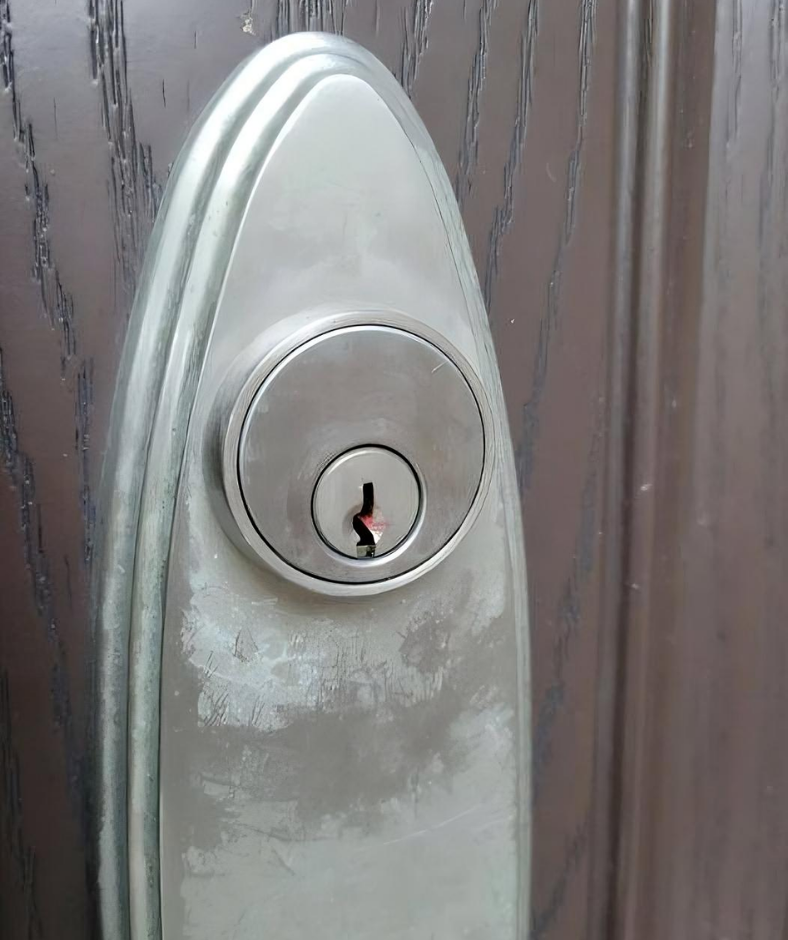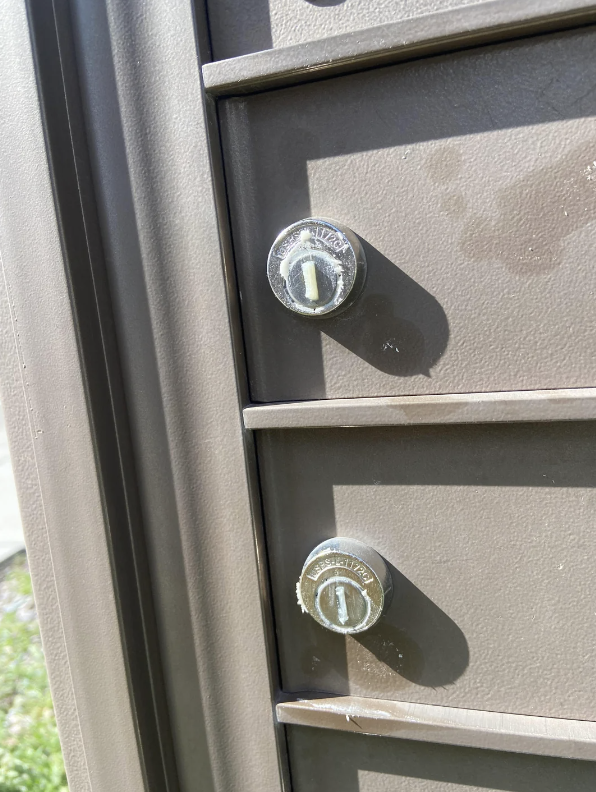In today’s world, the constantly developing threats of theft and squatting are a major concern for homeowners and property managers to remain on the alert in order to counter the new techniques used by burglars and squatters.
One such tactic that on the face of it may seem quite innocent is the use of wax or similar products on door locks. This harmless looking activity has been pointed out as a method by which criminals can observe activities within a property and thus, find vulnerable prey.
A Surprising Discovery
It is a rather eerie sight to come home and discover what looks like a red or white wax on your front door keyhole. At first, it may look like a prank or a problem with the equipment, but more often than not, it is a tactic used by criminals to acquire information.

For example, a property manager who flips houses saw that several houses in the area had their locks either damaged or coated with a substance that resembled white lipstick. When contacting the local authorities, it was explained that this is a tactic employed by squatters and thieves to monitor the activity of the keys and to determine which keys are used for which houses and which houses are likely to be unoccupied.
How It Works
The strategy is quite basic but works like a charm. Thus, by rubbing the keyhole with a similar substance, later on, it will be possible to check whether it has been tampered with. If it has not been damaged, then it means that nobody has had access to the property, and this may be an invitation to burglary or squatters. On the other hand, if the wax is removed or disturbed in general, it will make the property less attractive to burglars as this will indicate activity in the property.
Recognizing the Signs
Homeowners should be aware of the signs of this method:
- It is characterized by the presence of a waxy or lipstick-like substance on or around the keyhole.
- Difficulty in turning the key in the door lock.
- Similar substances on neighboring premises.

Ways to Secure Your House
- Regular Inspections: It is recommended that you do this on a regular basis: Examine your locks and other access points for any foreign objects or indications of interference.
- Clean the Locks: If you come across any form of wax or any other substance that is not supposed to be on your lock, you should try to remove it gently. To avoid pushing the substance further into the lock, it is advised to use a key extractor or any similar tool.
- Increase Security Measures: Some of the measures that you should take include ensuring that you have installed security cameras and lights that are activated by movement around your home.
- Inform Neighbors: It is advisable to pass your findings to other residents of your neighborhood to raise the alarm and be on the lookout within your locality.
- Contact Authorities: In case of identifying any act of tampering, it is advisable to report it to the nearest police station or crime prevention unit. Another way they can help is by offering suggestions and increasing police presence in your particular region.
- Re-Key or Replace Locks: If tampering is suspected, it might be best to change the locks or keys to make sure that your property’s security remains intact.
- Be Aware of Scams: Beware of people who may be trying to access homes in the capacity of sales people or service providers during the day.

Community Efforts and Awareness
Such strategies require the support and collaboration of the community to prevent their occurrence. Homeowners can ensure that they are protected and help their neighbors to protect themselves and their properties as well. Property managers must ensure that they gain knowledge on these methods to avoid situations that may lead to damages in the properties they manage.
The waxing of locks by burglars and squatters is a more subtle but very efficient way of identifying vulnerable targets. Preventative measures can be taken to ensure a property does not become a target for burglary or squatting by identifying the warning signs. In this case, awareness, cooperation, and the new safety measures that have been put in place can go a long way to prevent such occurrences from happening in our neighborhoods and thus help in promoting safety and security.